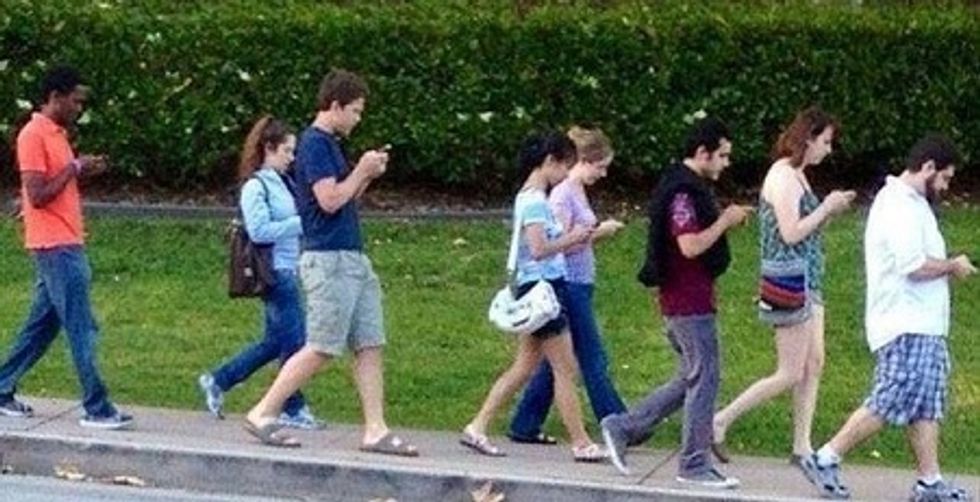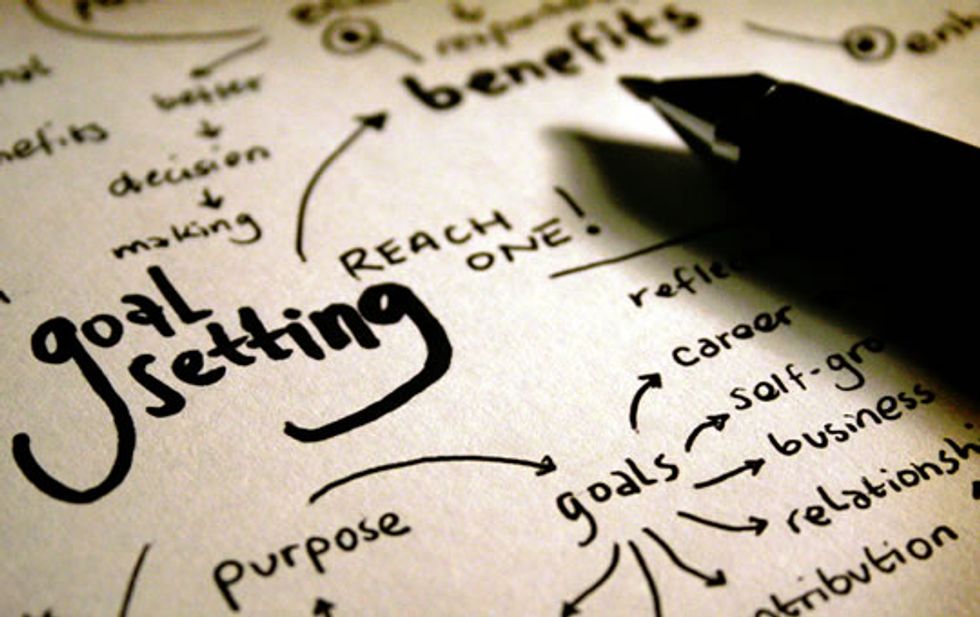Who Among Us Hasn't Made A New Year's Resolution?
Who Actually Kept Their Resolution?
Who Actually Achieved Their Resolution?
How Many Years Did You Repeat The Cycle?
Don't feel bad, the rest of the United States did it too, and possibly elsewhere in the world. It's not your fault, it's a part of U.S. culture.
In fact, DMG Media Group President and How Stuff Works columnist Laurie Dove, shared in her December 2012 article Why Do People Make New Year's Resolutions?, that the government had a webpage with a list of "popular resolutions and resources for achieving them".
That government website is no longer accessible, which I learned by clicking her link; because I was curious, and mind-blown that the government actually had the time and finances to not only research this idea, but publish and manage a website about it.
According to Dove, "It's a baker's dozen of good intentions, including: drink less alcohol, eat healthy food, get a better education, get a better job, get fit, manage debt, manage stress, and recycle." (Why Do People Make New Year's Resolutions?)
I would wager that these desires still top the list of resolutions made or being made this year. Dove also cited a Marist University poll from 2011 that revealed; " 'losing weight' topped the list for one in five resolution-making Americans, closely followed by 'exercising more', with 'spending less and saving more', 'quitting smoking' and 'being a better person' tied for third." (Why Do People Make New Year's Resolutions?)
Phil Brabbs, co-founder of Torrent Consulting and Inc. columnist, weighed in on this cultural concept as well; Why You Should Scrap Your New Year's Resolutions and Make This 1 Change. "This is the time of season whe[n] gym membership enrollment goes through the roof. I am sure self-help books are flying off the shelves right now too. We are telling ourselves that this is going to be the year that we get the work and life and everything in between, in order. But if we have failed in the last umpteen consecutive years, how can we insure that this year will be any different?"
Good question! What willmake it different? Why do so many of us fail at the resolutions we make?
Psychology Today columnist and published author, Ray Williams, cited some research work in 2014 on Why People Can't Keep Their New Year's Resolutions. "Are people just weak-willed or lazy?"
The first thing that popped into my mind when I read that sentence was Disney's WALL-E movie, the scenes with the human dystopia.
I would definitely call that weak-willed and lazy. The bad thing is, when I think of the future, the future my children will live in, this is what I imagine it like.
It's nearly happening now, between mobile technology abilities, facetime, texting, mobile t.v., electric scooters, hoverboards, swagtrons and segways, we're not far from this exact situation.
We already joke about the Zombie Apocalypse...
Walking and Texting...
You get the idea. Ray Williams discusses a psychology professor's determination of "false hope syndrome", in his article Why People Can't Keep Their New Year's Resolutions.
This "false hope syndrome, ... means the [sic] resolution is significantly unrealistic and out of alignment with their internal view of themselves. This principle reflects that of making positive affirmations. When you make positive affirmations about yourself that you don't really believe, the positive affirmations not only don't work, they can be damaging to your self-worth." (Why People Can't Keep Their New Year's Resolutions)
And, "the other aspect of failed resolutions lies in the cause and effect relationship. You may think if you lose weight, or reduce your debts, or exercise more, your entire life will change, and when it doesn't, you may get discouraged and then you revert back to old behaviors." (Why People Can't Keep Their New Year's Resolutions)
Peter Bregman, writing in the Harvard Business Review Blog Network, argues “When we set goals, we're taught to make them specific and measurable and time-bound. But it turns out that those characteristics are precisely the reasons goals can backfire. A specific, measurable, time-bound goal drives behavior that's narrowly focused and often leads to either cheating or myopia."
"Yes, we often reach the goal, but at what cost?” Bregman advocates creating an area of focus rather than goals, and goes on to say that “An area of focus taps into your intrinsic motivation, offers no stimulus or incentive to cheat or take unnecessary risks, leaves every positive possibility and opportunity open, and encouragescollaboration while reducing corrosive competition."
"All this while moving forward on the things you and your organization value most.” (Why People Can't Keep Their New Year's Resolutions)
That makes a lot of sense. There is also mention about neurological work and forming new pathways to create and strengthen a new habit. But, how can we get past that unbelievable positive affirmation and old habit roadblock?
Start SMALL! Decide to make ONE change in your life. When you reach that ONE goal or resolution, only then should you worry about making another.
For instance; say you want to lose weight. Aspects to losing weight are physical activity, good routine restorative sleep, and healthy eating. If you try to take on all of them at once, you're going to overwhelm yourself and fall back into your old patterns.
By having so many steps to one resolution, it will feel like another full-time job trying to manage it all, and the easiest thing for an overwhelmed mind is to go back to what is familiar.
Instead, like Phil Brabbs mentioned in his article, Why You Should Scrap Your New Year's Resolutions and Make This 1 Change, you could focus first on healthy foods or increasing your water intake, drink 1 glass of water a day.
Not carbonated water, or fruit fused water, or dehydrated packet infused water, just 1 glass of plain old tap water, or filtered tap water if you prefer.
It takes 90 days to make a habit, at 90 days if you have achieved at least 1 glass of water a day, you can decide if you want to bump up your water intake - the recommended daily intake for a person of standard height and weight is eight 8 oz glasses of water a day. Or you can decide if you need more time to reinforce that 1 glass a day habit before taking on any additional tasks.
Keep it SIMPLE! Baby steps.
I think I am going to work on making sure I get enough sleep every night. Being a college student, sleep is a luxury, add in my 3yo and 8yo minions and I think I have to go look up what sleep is, it's such a foreign concept.
What 1 SIMPLE goal will you start your New YOU with?

















 Photo by
Photo by  Photo by
Photo by  Photo by
Photo by 










